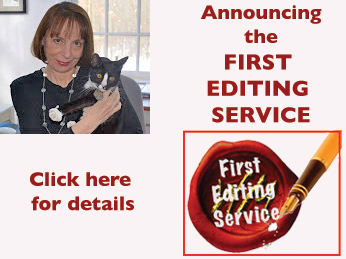 Post #179 – Women’s Memoirs, Writing Prompts and Life Prompts – Kendra Bonnett and Matilda Butler
Post #179 – Women’s Memoirs, Writing Prompts and Life Prompts – Kendra Bonnett and Matilda Butler
Why Can’t I?
I began this blog post with a bold title, contending that you can’t have both a big story and big characters. Your first reaction might be, “Why can’t I? I’ve got a complicated story that covers a lot of ground and there are a large number of people who have to be in the book in order to explain everything.”
Fair question. Let me answer.
I’ll back up and give you the source of inspiration for this concept. Recently, I attended the Oregon Shakespeare Festival (OSF) in Ashland, Oregon. Although I’d often heard about OSF during the 40 years I lived in California, I only began to attend performances in the past five years. On a recent visit, I attended an afternoon lecture on Cymbeline. I knew little about this Shakespeare play as it is rarely performed and thought I’d better find out all I could before settling into the evening show at the Elizabeth Stage (where it rained, drenching us, but the actors never missed a line).
The Education Director told us about the plot (while not giving it all away). But one of her major points was that you can’t have both a big story and big characters. She said that Cymbeline is a big story covering a number of years, various locations, and even dipping into the history of the major characters. She said that when so much was being covered in the story that some sacrifice has to be made and that Shakespeare relied on stereotypes to help the audience understand the characters. Of course, each one is well etched but the shorthand that stereotypes provide meant there was less for the audience to keep track of.
That made me think about memoir.
Alternative #1: If you have a big story–you cover a number of years and/or a number of locations and/or a complicated or convoluted plot–then you need to focus primarily on you and a limited number of other people. You shouldn’t try to get into a deep understanding of many other people. Just stick with you and a few others. Let your readers focus on the story and have them remember all the twists and turns.
Alternative #2: If on the other hand, your story if fairly straight forward or covers a limited amount of time, you can afford to go deeper into the various people in your story. Let them become rich in details. Let your readers savor and remember them long after they have finished reading your story.
Memoir Writing Prompt
1. Take five to ten minutes to just think about the story that you want to tell in your memoir. Then write a short paragraph that is a synopsis of the storyline. How much territory are you covering?
2. Take another five to ten minutes and consider the people you are including in your memoir. Make a list of all the people you believe you need to tell your story.
3. Now write down: “Big Story” or “Small Story.” Note that big and small have nothing to do with importance. A small story can be even more significant or important than a large one. Size, in this case, means how complicated it is–how many places are included–how many years or decades are covered.
4. Now write down: “Big Characters” or “Small Characters.” Again big and small don’t refer to the value of the characters. Instead big and small are influenced by the number of characters–how many years of their lives are covered–how vital each one is to the story you are telling.
5. Look at your written exercise. If you have a small story and small characters, then you can continue to enrich your character descriptions, emotions, dialogue, etc. Go deep into these characters so that they are not only vivid, but they cross over the course of the memoir. If however, you have big story and big characters, you need to rethink what you want to emphasize because readers will find it difficult to keep up with both.
My bottom line is that if Shakespeare knew you could only have one of these, then I’ll definitely have problems if I try to have both.
[NOTE:] If you don’t know Cymbeline, you should find out about it. It was one of Shakespeare’s final plays when his skills were well refined and he wrote with confidence. In this story he tells an improbable tale that seems almost probable — a story of loyalties betrayed, identities confused, and deception. Then consider Hamlet where the emphasis is on characters rather than a big story.

















